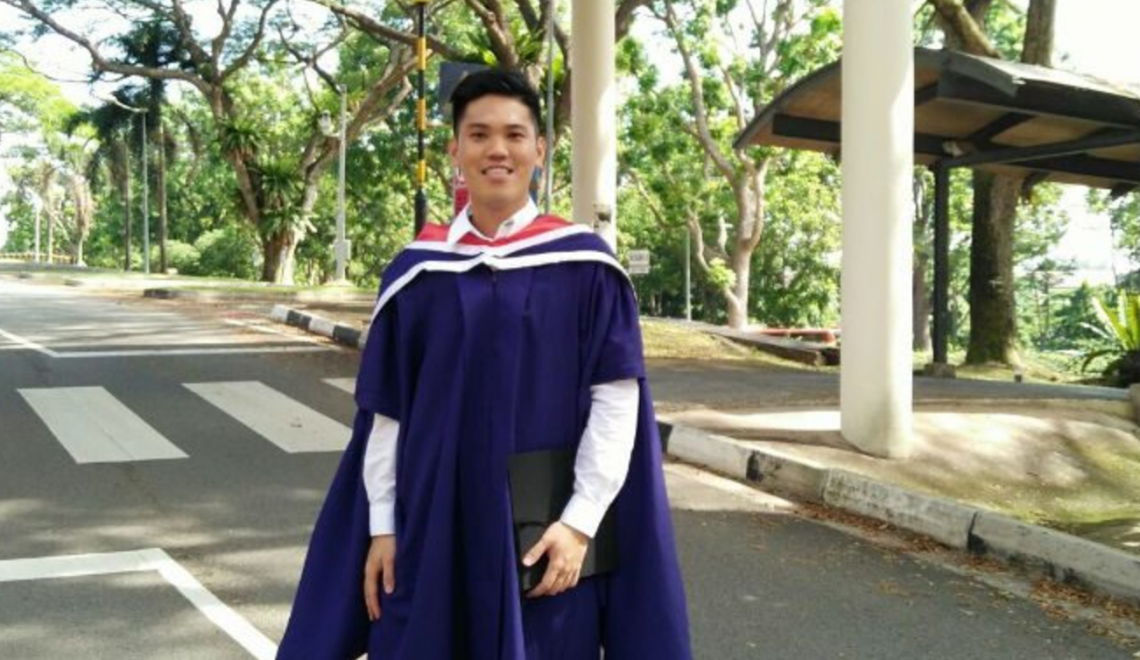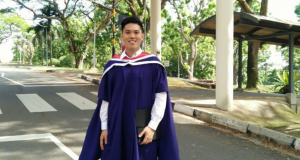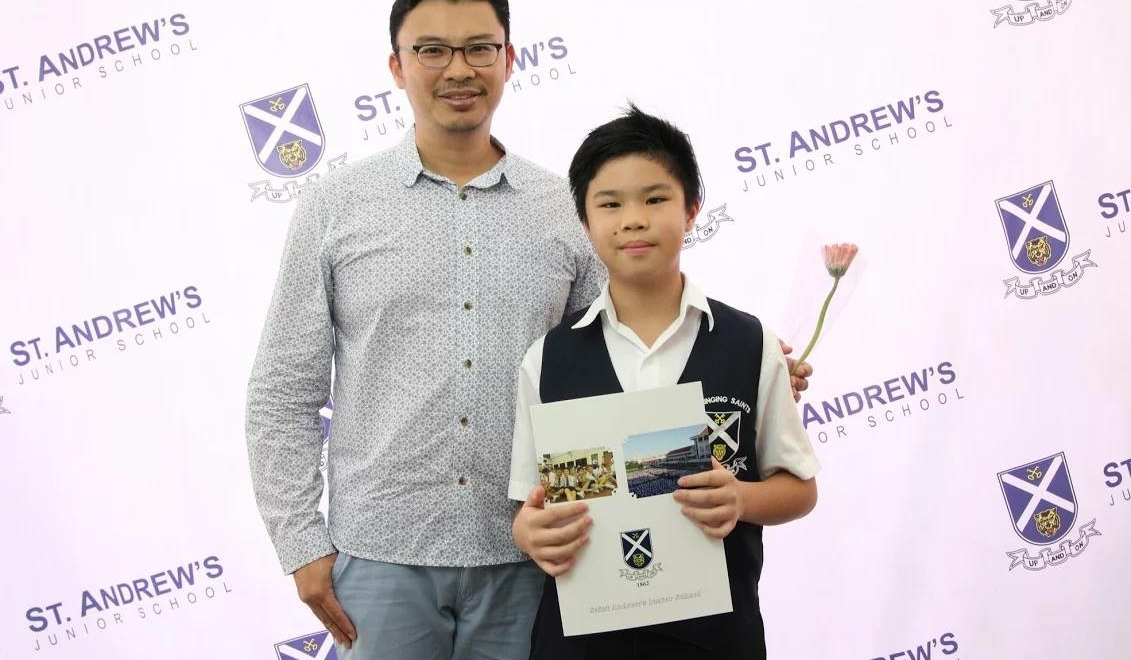

We met up with Zhang ZhiRong on the Sunday afternoon after his graduation from the National University of Singapore’s Master of Architecture course.
Why did we want to know his story, the earnest young man asked. We said it was to inspire others – it’s not everyday that a student from EM3, with a PSLE grade of 105, gets a masters degree. He nodded and settled into interview mode, politely volunteering information he thought may be useful. And peppering his story with many expressions of gratitude to everybody who helped him get to where he is today.
Here are some thoughts from a man on a mission – in his words, because there is just something raw and real hearing directly from somebody who defied the odds and succeeded on his terms.
1. Your grades really don’t define you
I was streamed into EM3 at 10 years old. I scored 105 for my PSLE, which meant that I could only qualify for the Normal (Technical) stream. I remember my uncle (saying) me “stupid”, as I was the only person in my extended family with such poor grades.
In secondary school, as much as I tried, I could never do well for English. All my other subjects were above average, but because my English grades were bad, I never made it out of the N(T) stream, and could only go to ITE. When I was doing my National Service, I used my NS pay to get private tuition for my English. I re-took my O level English exams twice. Till today, I still have not passed it.
I’m grateful that my weak English did not stop me from going on to Poly, then University and now taking on a good job in an architectural firm.
2. Character matters more
3 words to describe myself? I would say determination first and foremost. If I take on something, I will definitely want to do my best. Hardworking too, I guess.
(And after being pressed for a third defining word) Does “cheerful” count?
I have a neighbour who took care of me when I was a child, and just the other day I was speaking with her daughter. Her daughter doesn’t like to study and is also in the Normal (Technical) steam. I found myself saying to her that results don’t matter that much. It’s how we respond to it that matters more. If we get poor grades after we study, it’s ok. We just move on to find something we like and can do well in. But we have to keep working hard. There will always be opportunities to study in future, but character defines who you are for life.
3. A slow start can be discouraging but every flower will bloom in the end
I still remember my mother’s disappointed face when she was informed by my principal that I had been streamed into EM3. My elder brother and younger sister did so much better at school than I did. But my mother never pressured me.As a child in kindergarten, I was very affected by my parents’ divorce. I didn’t have much motivation to do well, and as my parents were both working, I was left at home alone for long hours. Nobody at home spoke English – I had a slow start.
We can’t change the past, but we can work hard and determine our future. My turning point came in Bedok ITE where I really enjoyed the building drafting course I had enrolled in. It was not language or maths dependent, and I realized that this was an area I liked and could excel in. So I continued with architecture in Singapore Polytechnic. Having a good grasp of the technical aspects helped me very much in my architecture degree in NUS.
When I was in Mayflower Secondary School, my teachers encouraged me by saying that “every flower will bloom in the end”. That was one of the things that spurred me on.
I really have to thank the many teachers, and lecturers in ITE and Poly, and also my friends who did not give up on me.
Madam Lim, my primary school teacher was one of the first teachers who gave me personalized attention and believed that I could achieve more. She was very caring. I still have the birthday card she gave me all those years back.
And my friend Keris. She was in the same secondary school and ITE, and she encouraged me a lot. She doesn’t come from a rich family, but she started work earlier than I did, as a designer. And she helped me a lot financially, when my part-time job as a Takashimaya shoe salesperson couldn’t completely cover my school expenses.
4. I understand what it is like to have nobody there to help. Now, I just want to give back.
Having been through some very low points in my life, I really want to be able to help those in need.
During my NS, I served with the Singapore Police Force, in the vocation of “Person In Custody”. My main takeaway was that there is no difference between the accused and I. Some of our backgrounds were so similar: broken families, EM3, bad grades, and so on. It could have been me. So I started sharing my story and telling them that if I could make it out of that situation, they could too. I hope to go back to work with these accused at some point.
When I was in university, a very close primary schoolmate passed away. I helped his sister with her N levels Math for a couple of months because there was nobody else available to help, and the family couldn’t afford private tuition. Now I am volunteering with MINDS (Westend) every Saturday, and I have been doing so for the past 3.5 years.
5. The learning continues
I am still taking English classes from Madam Lim, my Primary School teacher. I wanted to pay her, but she declined. Now I meet her most Saturday mornings, from 8am to 10am. For the next 2 years, I want to grow as an architect, and then at some stage, I hope to join the prison services as an officer to rehabilitate the prison inmates.
At Flying Cape, we are very touched by Zhi Rong’s story. It almost seems that Michelle Obama’s very last commencement speech as First Lady was tailor-made for Zhi Rong.
“You should never view your challenges as a disadvantage. Instead, it is important for you to understand that your experience facing and overcoming adversity is actually one of your biggest advantages.”
View Michelle Obama’s speech here, and tell us what you think.
You may also like Zhi Rong’s thank you message to his teacher:



